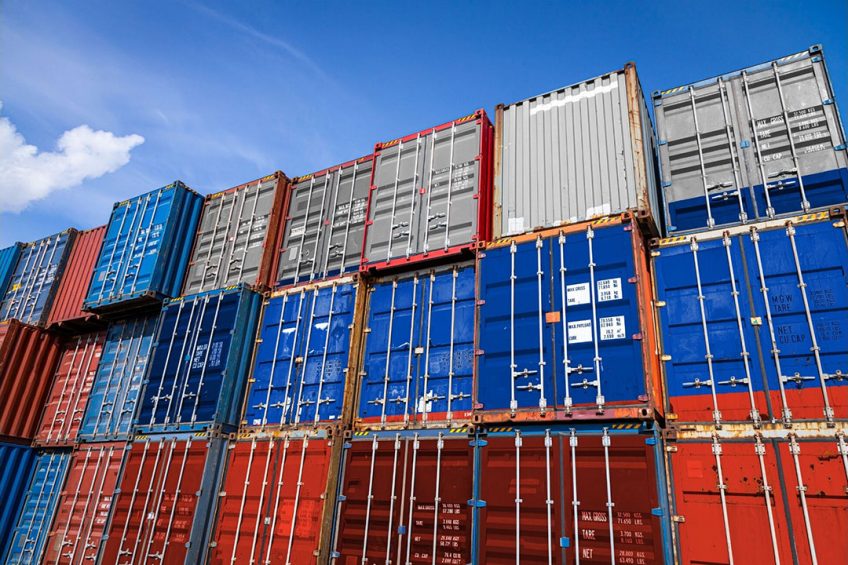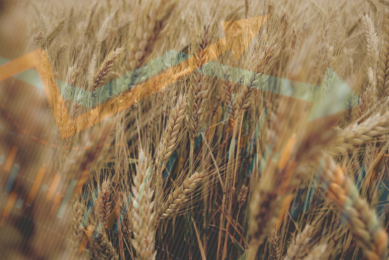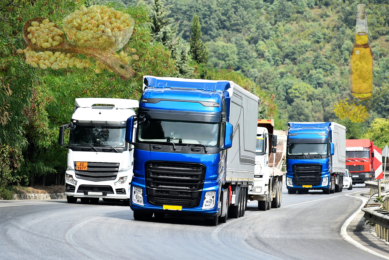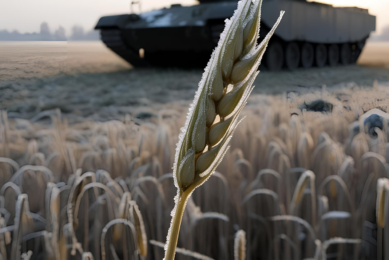Russia’s new import policy shakes feed additives market

Since the beginning of the Covid-19 pandemic, the Russian veterinary watchdog Rosselhoznadzor has been tightening the screws on feed additive imports from Western countries. Restricting more than half of all supplies as of late June 2020. Thus raising questions as to whether the government plans to abandon feed additive imports altogether.
On May 18, Rosselhoznadzor barred feed additives import from Germany after a routine inspection revealed GMO residues in supplied products. Shortly after, the UK and Canada found themselves on the list of countries not allowed for exporting their feed additives to Russia. Earlier this year, Rosselhoznadzor banned the feed additives import from Spain and the US, as well as from the Netherlands in late 2020, in each case also citing GMO fears.
However, GMO was not the only apple of discord between the Russian and foreign veterinary regulators.
In June, a new round of restrictions affected Poland and the Czech Republic. This time, a lack of control over veterinary safety was cited as one of the main rationales behind new restrictions.
Poland to take matter up with EC
“Already during the inspection, the Russian side’s differing views on how state supervision should work in this area were evident. While EU legislation lays responsibility for feed safety primarily on producers’ shoulders, Russia assumes that the main responsibility lies with regulators,” Petr Vorlicek, spokesperson for the Czech veterinary agency SVS said.
The Czech Republic exported 23,500 feed to Russia for 1.15 billion Krones ($53.5 million) in 2020, roughly 5% of the total export.
Grzegorz Puda, Polish Minister of Agriculture, expressed confidence that the import restrictions had clear political colours and promised to raise this issue with the European Commission.
Rosselhoznadzor, all of a sudden, began banning feed additives the quality and safety of which the Russian regulator was happy with during the previous years.
Russian restrictions come out of the blue
It is worth noting that no major new veterinary regulations have been approved in Russia, and no new control measures have been introduced during the past few years. “Rosselhoznadzor, all of a sudden, began banning feed additives the quality and safety of which the Russian regulator was happy with during the previous years,” commented a source in the Russian feed industry who wished not to be named.
“For us, the main problem is unpredictability. Nobody can say which countries would still be allowed to export their products to Russia in a month or a year. This is extremely bad for business,” the source added.
Pig and poultry farms are the victims
“The Russian trading companies and feed additives consumers – pig farms and poultry farms – appeared to be victims in this situation,” commented Lyubov Savkina, director of the Russian consulting agency Feedlot. “Of course, a number of producers managed to switch to similar products made in China quickly, but there were also quite difficult circumstances associated with a shortage of containers, closing ports, production halts, etc. as a result, the terms of delivery of products, as well as their cost, jumped by a factor of 2-3 times,” she added.
In this background, some market participants expressed fears that the new Rosselhoznadzor’s stance on feed additives import could leave the Russian livestock industry without imported feed additives from Western countries.
Reduced the level of state control over feed additives
On June 25, Rosselhoznadzor allowed the feed additives imports from several German and Dutch suppliers for a period of 3 months. However, the Russian regulator again raised concerns over the lack of veterinary control in the European Union.
“Several European countries have noticeably reduced the level of state control over feed and feed additives exported to Russia,” Rosselhoznadzor said.
Complicance to Eurasian Union’s requirements
In this regard, all imported products must be subjected to enhanced laboratory monitoring, the Russian regulator stressed.
“During this period, the veterinary services of these countries will be given the opportunity to prepare and submit to the Rosselkhoznadzor the requested information confirming the fulfilment of the Eurasian Union’s requirements, including those related to the traceability of raw materials and products of plant and animal origin,” the Russian regulator added.
African swine fever and Avian influenza outbreaks
Rosselkhoznadzor expressed concerns that since the beginning of 2021, 7,182 outbreaks of African swine fever and more than 1,000 cases of bird flu had been registered in the EU.
“The decision to allow feed and feed additives from these countries was taken at a time when these animal diseases were not so widespread. Due to the changed level of biological risk, the veterinary services of European countries had to significantly adjust their approaches to veterinary control,” Rosselkhoznadzor said.
Control of veterinary services on feed additive content
“However, Rosselkhoznadzor’s inspections confirmed that the origin and movement of raw materials are not subjected to state control in European countries, and the temperature regimes of their production are also not monitored,” the Russian regulator stated.
In addition, Rosselkhoznadzor discovered that veterinary services do not control the content of growth simulators, heavy metals, mycotoxins, antibiotics, pesticides, and GMOs in both feed and feed additives. This also follows from the results of routine inspections held by Rosselkhoznadzor.
Products are not checked for compliance with Eurasian Union’s regulations
“Particular concerns are associated with the fact that foreign veterinary services do not check products sent to Russia for compliance with the requirements of the Russian and the Eurasian Union’s regulations, but check safety according to their internal standards,” Rosselkhoznadzor said, adding that some feed additives instead of 95-100% of the active substances indicated on the label, contained only 10% to 50%.
Spain, US and Canada refuse to negotiate
On July 6, during a meeting with businesses Rosselkhoznadzor said that Germany and the Netherlands began communicating with the Russian side to overcome the existing problems. Spain, the US, Canada and some other countries completely refuse any form of negotiations.
Price fluctuations for domestic feed additives
Russian analysts said that so far, the import restrictions caused strong price fluctuations on the domestic feed additives market, but no critical damage has been done yet.
“The bans undoubtedly bring nervousness to the feed additives market and make it unpredictable,” commented Lybov Savkina, director of the Russian consulting agency Feedlot. “In general, the dependence on imports continues to be at 80%, while for some important items, such as vitamins and amino acids, Russia is 100% dependent on imports. Germany, the Netherlands and Spain, in contrast to the US, Canada, and Great Britain, are rather large suppliers of feed additives, and the imposed bans have undoubtedly led to an increase in prices for a number of products,” Savkina said.
Prospect of future deficits
“So far, the imposed restrictions have not had much impact. The companies also have stocks of the usual feed additives, and some supply alternatives remain. However, of course, the industry was troubled over the prospect of future deficits and associated price increases. As the supply situation remains an issue, it may affect production efficiency and, consequently, costs,” Sergey Yushin, executive director of the Russian National Meat Association.
In 2020, Russia imported feed additives for Rub40 billion ($600 million) – the highest figure ever, BNC Pharma estimated.
Completely stopping imports
Russia definitely is not going to ban feed additives import completely, said Yushin.
“I believe no country could possibly abandon import of feed additives, veterinary drugs, and other production components. As far as I know, Russia has not set such a utopic target. Fully stopping imports would be equal to shooting ourselves in the foot.” Yushin said. Adding that Rosselkhoznadzor has to protect the domestic market and ensure all products are safe.
What led to the restrictions?
“The regulator is aware of our concerns and has an open and ongoing dialogue with the industry. We understand that several reasons led to the tough, forced measures. One of which was ignoring the requests from the Russian side. All that the Rosselkhoznadzor wants is to get answers to its legitimate questions. And to be confident in the efficient work of the veterinary services in exported countries,” he said.
What is need to lift the restrictions?
Yushin stressed that some restrictions were lifted as soon as the Russian veterinary service received the necessary documents. Rosselkhoznadzor even asked Russian manufacturers and importers to expedite responses to the regulator’s questions through their communication channels.
Sergey Mikhnyuk, CEO of the National Feed Union also said that Rosselkhoznadzor executed its right to protect the domestic market. And was forced to apply restrictive measures after Western countries refused from dialogue with the Russian side. Mikhnyuk added that one way or another the Russian regulator would not ban feed additives import into Russia for good.
Some loopholes for import would be opened, so that those pets [requiring import feed] won’t die, but the problem is that nobody knows how many of them we have.
Pet food sector caught in the crossfire
The Russian law doesn’t separate pet food from animal feed. Therefore, all countries affected by the veterinary restrictions also lost the right to export pet food to Russia.
These restrictions could spur a wave of bankruptcies among 12,000 retailers, 3,000 veterinary clinics, and 130 importers on the Russian pet food market, the Russian Zoobusiness Union, said in a statement in June. In 2020, pet food sales on the Russian market climbed by 10% to 200 billion roubles ($2.8 billion). Imported pet food accounts for 15% of overall sales, roughly $300 to $400 million. With almost all supplies coming from the European Union, the US, and Canada – the countries that fell under the restrictions.
The biggest problem was that Russia has nearly a 100% dependence on medicated and specialised feed. In these circumstances, Zoobusiness Union warned, thousands of pets in Russia may be jeopardised by the restrictions.
The problem has been recognised by Rosselhoznadzor during the meeting on July 6. “Some loopholes for import would be opened, so that those pets [requiring import feed] won’t die, but the problem is that nobody knows how many of them we have. There is no nationwide database of pets in the country,” a source, participating in the meeting said.











